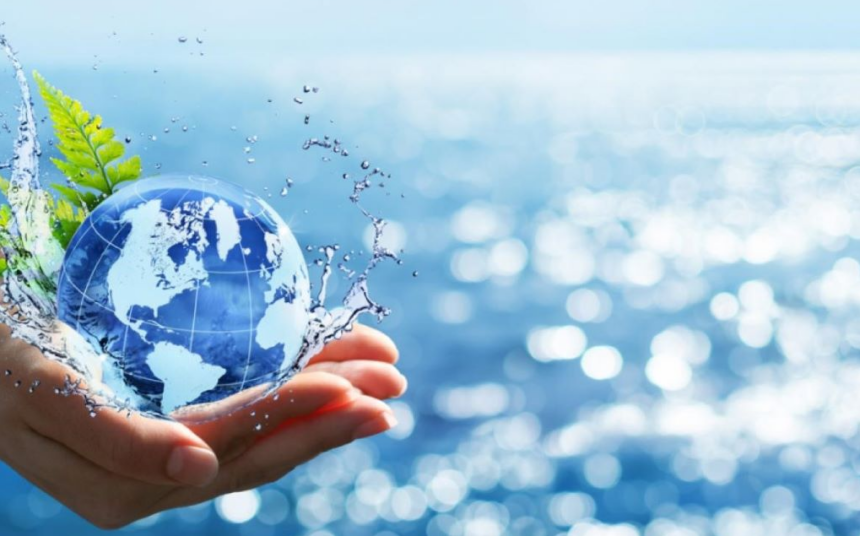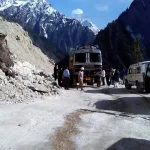The issue of water shortage is a significant global concern that carries extensive consequences for sustainable development, economic advancement, and the overall welfare of humanity. In recent times, there has been a notable escalation in global water stress, which can be attributed to a confluence of causes including climate change, population expansion, urban development, and unsustainable approaches to water management.
Present patterns of water scarcity are escalating water demand. The worldwide need for water is steadily increasing because of population expansion, urbanization, and economic progress. According to the United Nations World Water Development Report 2022, it is estimated that there will be a 20% to 30% rise in worldwide water consumption by the year 2050. This projected increase is expected to strain the existing water supplies. The phenomenon of climate change is intensifying the issue of water shortage by causing changes in precipitation patterns, rising temperatures, and a higher occurrence of droughts and floods that are more frequent and severe. The Intergovernmental Panel on Climate Change (IPCC) predicts that climate change will substantially affect the quantity, quality, and distribution of water, especially in areas already facing water scarcity.
The excessive utilization of groundwater resources has resulted in the depletion of aquifers, leading to a decline in water tables and an elevated susceptibility to land subsidence and saltwater intrusion. Approximately 25% of the global population resides in regions where the rate of groundwater extraction exceeds its capacity for replenishment, as reported by the World Resources Institute (WRI). Water Quality Degradation,the contamination of water from industrial, agricultural, and home activities poses a significant obstacle, diminishing the accessibility of uncontaminated and hygienic water for human consumption and the well-being of the environment. According to the United Nations Environment Programme (UNEP), a significant proportion of wastewater, around 80%, is released into the environment without undergoing sufficient treatment.
Integrated Water Resources Management (IWRM) is essential for sustainable water management as it considers the interdependencies among water, land, and ecosystems. IWRM aims to optimize economic and social well-being while ensuring environmental sustainability by coordinating the development and management of water, land, and other resources.The implementation of efficient water governance and institutional changes is needed to effectively tackle the difficulties posed by water scarcity. The proposed measures encompass enhancing the legal and regulatory structures, enhancing the systems for pricing, and allocating water resources, and fostering stakeholder engagement and openness in the decision-making procedures.
Water infrastructure investment is crucial for bolstering water security and enhancing access to safe water and sanitation. This includes the construction of water storage facilities, desalination plants, and wastewater treatment systems. These initiatives can be supported by utilizing public-private partnerships and new finance strategies.
Water demand management involves the implementation of various strategies, including water conservation campaigns, incentives for water-efficient technologies, and pricing mechanisms that accurately reflect the value of water. These measures aim to decrease water consumption and encourage the adoption of more sustainable water use practices.The enhancement of transboundary water cooperation and dispute resolution mechanisms is of utmost importance in effectively addressing the issue of water shortage in shared water resources. This encompasses the enhancement of international agreements, the facilitation of data sharing, and the cultivation of collaborative strategies for water management among nations situated in riparian zones.
There exists a strong interconnection between water shortage and various Sustainable Development Goals (SDGs), namely SDG 6 (Clean Water and Sanitation), SDG 2 (Zero Hunger), SDG 7 (Affordable and Clean Energy), SDG 13 (Climate Action), and SDG 15 (Life on Land). The mitigation of water shortage is necessary to attain these objectives and guarantee the attainment of sustainable development. SDG 6 is primarily focused on the objective of guaranteeing the accessibility and sustainable administration of water and sanitation services for all individuals. This encompasses the enhancement of water-use efficiency, the preservation and rehabilitation of water-related ecological systems, and the facilitation and reinforcement of local community engagement in the enhancement of water and sanitation management.
Efforts aimed at mitigating water shortage also play a significant role in the attainment of SDG2 by bolstering agricultural productivity and guaranteeing food security in regions experiencing water constraints. Furthermore, the implementation of sustainable water management methods is crucial to accomplish SDG 7, as water serves as a vital resource for diverse energy generation procedures, such as hydropower and cooling systems for thermal power plants. Moreover, the issue of water shortage is intricately linked to Sustainable Development Goal 13, as the implementation of climate change mitigation and adaptation measures is crucial in mitigating the adverse effects of water scarcity that are further intensified by climate change. Sustainable water management techniques contribute to the achievement of Sustainable Development Goal 15 by safeguarding and rehabilitating water-related ecological systems, including wetlands, rivers, and aquifers. These systems are crucial in maintaining biodiversity and providing essential ecological services.
Hence the issue of water scarcity is a complicated and intricate problem that necessitates collaborative endeavors from governmental bodies, civil society and other stakeholders across different levels. To address water scarcity and contribute to the achievement of the Sustainable Development Goals, we can adopt integrated water resources management approaches, promote water governance and institutional reforms, invest in water infrastructure, implement demand management strategies, and foster transboundary water cooperation. Water security is crucial not only for human welfare and economic progress but also for the conservation of the Earth’s ecological systems and the protection of our collective future.
(Dr. Firdous Ahmad Malik is Assistant Professor of Economics, Department of Management.
University of People, Pasadena, California, United States. Email: [email protected]. And Dr. Samriti Mahajan,Associate Professor, Head Department of School of Commerce & Management Lingaya’s Vidyapeeth, Faridabad)








